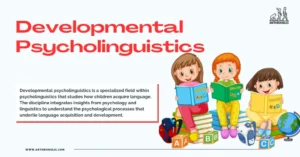AI Answer Evaluation Platform Live Now. Try Free Answer Evaluation Now
Industrial Economy
Industrial economies have reshaped global cultures in profound ways. It is therefore becomes crucial to explore the impact of industrial economies from an anthropological perspective, providing a nuanced understanding of the social and cultural changes that accompany industrialization.

Evolution of Industrial Economy
The term ‘Industrial Economy’ refers to an economic system that heavily relies on manufacturing and industrial activity as its primary source of income [1]. Here’s a brief overview of its evolution:
- Agrarian Society: Human societies initially depended on hunting and gathering, transitioning to agrarian societies where farming became the primary means of sustenance [2].
- Industrial Revolution: The 18th-century Industrial Revolution marked the shift from agrarian societies to industrial economies in Europe and North America [3].
- Modern Industrial Economies: Today, many countries possess highly developed industrial economies, while others are rapidly industrializing [4].
Impacts of Industrial Economy on Societies
Industrialization has brought significant changes in societies worldwide, influencing diverse aspects such as:
Social Structure
The industrial economy reconfigured social structures in multiple ways:
- Emergence of a distinct working class: Industrialization led to the development of a new class of industrial workers. The introduction of machinery changed the nature of work, rendering many traditional skills obsolete.
- Urbanization: As factories sprang up, rural populations migrated to urban centers, leading to rapid urbanization.
- Gender roles: Women entered the workforce, sparking debates on gender roles and leading to shifts in societal norms.
Cultural Changes
Industrial economies also catalyzed profound cultural changes:
- Changing family structures: The nuclear family replaced extended families as a dominant social unit.
- Consumerism: Mass production of goods led to the rise of consumer culture.
- New ideologies: Ideas like capitalism, socialism, and communism gained traction in industrial societies.
Environmental Impact
Industrial economies have significant environmental implications:
- Pollution: Industrial processes often result in air, water, and soil pollution.
- Climate change: High levels of greenhouse gas emissions from industries have contributed to global warming.
- Resource depletion: Overreliance on finite natural resources poses a long-term threat to sustainable development.
Case Study: The United States
The United States is a prime example of an industrial economy. Below is a table representing the sectoral contribution to the US GDP over the last 50 years (source: World Bank).
| Year | Agriculture (%) | Industry (%) | Services (%) |
|---|---|---|---|
| 1970 | 4 | 40 | 56 |
| 1990 | 2 | 35 | 63 |
| 2010 | 1 | 27 | 72 |
| 2030 (projection) | 1 | 25 | 74 |
The data reflects the country’s transition from a predominantly industrial economy to a service-based one, a common trend in developed countries.
Strategies for Sustainable Industrial Economies
As societies grapple with the impacts of industrial economies, numerous strategies are being considered and implemented to ensure a sustainable future:
Transition to Green Industries
Many industrial economies are transitioning to ‘green industries’. This shift involves replacing traditional manufacturing processes with more environmentally friendly methods, using renewable energy sources and producing goods that contribute to sustainable development.
Implementing Circular Economy Models
A circular economy is an alternative to the traditional linear economy (‘make, use, dispose’). In a circular economy, resources are kept in use for as long as possible, extracting maximum value from them and recovering and regenerating products at the end of their life.
Digitalization of Industries
The increasing digitalization of industries—often referred to as ‘Industry 4.0’ or the ‘fourth industrial revolution’—is changing the nature of manufacturing. It involves the integration of advanced technologies like AI, IoT, and robotics into industrial processes, reducing resource consumption and improving efficiency.
Future Trends: Industrial Economies in the Digital Age
Industrial economies are undergoing another significant transformation with the advent of digital technology. Some future trends include:
- Automated production: Automation is expected to become even more prevalent in manufacturing processes, potentially transforming labor markets.
- On-demand production: The growth of technologies such as 3D printing could lead to a shift from mass production to more customized, on-demand production.
- Decentralization: Blockchain technology could lead to decentralized industrial economies where peer-to-peer transactions become more common.
Conclusion
The industrial economy has fundamentally reshaped human societies, altering social structures, cultural norms, and the environment. The challenges it poses are significant, but so are the opportunities. As we move further into the digital age, it is imperative to leverage technology and innovative economic models to create more sustainable and equitable industrial economies.
References
[1] Clark, G. (2007). A Farewell to Alms: A Brief Economic History of the World. Princeton University Press.
[2] Diamond, J. (1997). Guns, Germs, and Steel: The Fates of Human Societies. W.W. Norton & Company.
[3] More, C. (2000). Understanding the Industrial Revolution. Routledge.
[4] World Bank. (2023). World Development Indicators. The World Bank.
[5] Thompson, E.P. (1966). The Making of the English Working Class. Vintage.
[6] Wirth, L. (1938). “Urbanism as a Way of Life.” American Journal of Sociology, 44(1), 1-24.




